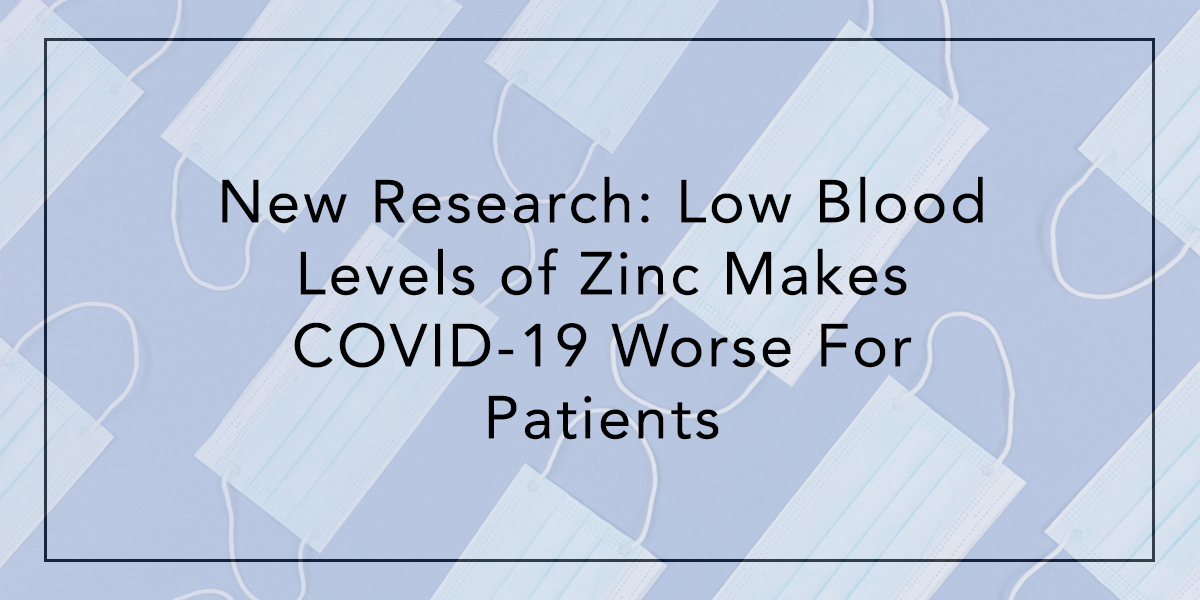New Research: Low Blood Levels of Zinc Makes COVID-19 Worse For Patients

Written by Nutritional Copy Writer Antonia Brogna
Zinc is an essential mineral that the body uses for many important functions and systems, including your immune, cardiovascular, reproductive, and nervous systems. Zinc can be obtained by consuming foods like meat, shellfish, and legumes, or by taking a supplement. Zinc deficiency can cause acne, bad breath, and frequent infection, amongst other things.†
A team of Spanish researchers found that people hospitalized with the virus who had low levels of zinc were not as likely to survive.
“Lower zinc levels at admission correlate with higher inflammation in the course of infection and poorer outcome,” the team of researchers said.
In March and April, these researchers studied a group of 249 patients who had been hospitalized with COVID-19. The average age of the patients was 63 years old and their average zinc level was 61 micrograms per deciliter (mcg/dL). Eight people from this group died from the virus. The researchers found that these patients exhibited lower levels of zinc in their blood, with an average of 43 mcg/dL. Patients that survived showed higher zinc levels, with an average of 63 mcg/dL.
The study found that overall, the odds of a patient dying from COVID-19 while hospitalized decreased by 7% for each unit zinc increased in the bloodstream.
Another review done by researchers at Sechenov University in Moscow, Russia echoed these findings. These researchers found that zinc supports the immune system, specifically with antiviral functions, and also decreases inflammation in the body. They noted that more than 1.5 billion people worldwide are at risk for zinc deficiency, which can impact immunity.
“Given the crucial role of zinc in regulation of immunity, one can propose that its insufficiency may be considered as a risk factor for infectious diseases,” Professor Anatoly Skanly, lead author of this review and head of the Laboratory of Molecular Dietetics at Sechenov University, said.
Researchers want to continue studying the link between zinc and COVID-19 in the hopes of learning more, but that doesn’t mean we have to wait to work on boosting our zinc levels. This evidence shows that now more than ever, zinc is essential to maintaining our immune system and overall health.†
